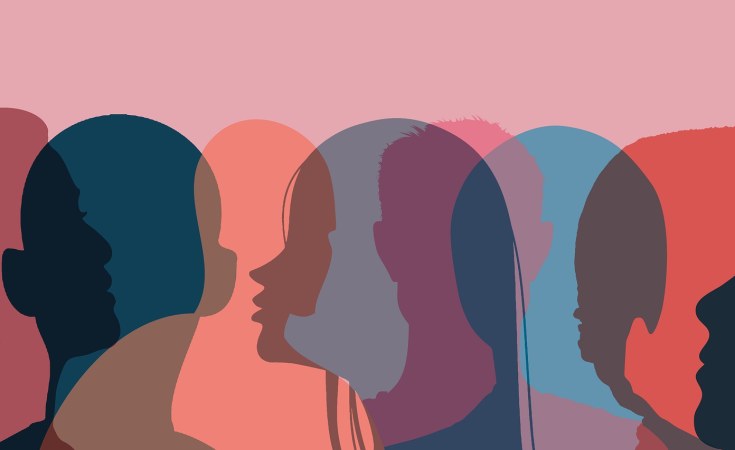Nairobi — National Assembly Speaker Moses Wetangula has poked holes on the Supreme Court judgment that granted the lesbian, gay, bisexual, transgender and queer (LGBTQ) community the rights form a lobby group.
Wetangula asserted that the majority ruling on the issue might erode the moral fabric due to the consequences occasioned by the right to association of the group deemed unlawful.
Despite Kenya being a secular state, the National Assembly Speaker faulted the Judiciary decision arguing that the nation is highly religious and it was up to the Supreme Court to defend the public morals.
"Kenya is deeply religious. Each Individual and/or Public institution, including the judiciary, has a duty to uphold, defend and protect public morals!! The SC pronouncement may lead to unintended and unhelpful consequences," he tweeted.
This comes hours after the Attorney General Justin Muturi vowed to challenge the ruling saying the issue was beyond the corridors of justice but one that required public consultation.
Muturi is seeking an advisory opinion on the judgment that has caused a storm among evangelical circles who said the ruling sets a bad precedent as pedophiles, and those who violate other norms might follow suit.
Homabay Town MP is seeking to sponsor a bill that would impose a life sentence on those convicted of engaging in homosexuality and other unnatural sexual acts.
Same-sex activity is prohibited under the Penal Code 1930, which criminalizes acts of 'gross indecency' and 'carnal knowledge against the order of nature'.
Currently, the law stipulates a 14-year jail term for those found guilty of engaging in homosexuality.
Kaluma's bill aims to introduce legislation against the promotion of homosexuality.
Evangelical Church Stand
The Nairobi-based CITAM Church has faulted Friday's decision by the Supreme Court allowing the LGBT community the form a lobby group.
Christ Is The Answer Ministries, through its Bishop Calisto Odede, termed the ruling as contradictory in a statement circulated on Sunday.
Odede said the ruling is against the cultural norms and called upon Christians and Kenyans to reject the ruling.
"We encourage Kenyans of moral integrity to reject, resist and oppose this supreme court ruling as it will erode our societal norms and morals," CITAM's Presiding Bishop stated.
Odede said the ruling sets a bad precedent arguing pedophiles, and those who violate other norms, could seek similar reliefs.
"The Bible speaks seven times about this kind of relationship directly; Ge.19:1-11; Lev 18:22; 20:13; Judge 19:22-25; Roman 1:25-26; 1 Cor.6:9, 1 Tim.1:9-10. In all these passages, homosexuality is not approved but rather is viewed as sinful, unnatural and perverted," he stated.
CITAM said affirmed that the Church was willing to help those struggling with homosexuality through counselling and prayers.
Supreme Court Ruling
The Supreme Court in its ruling, stated: "Despite gayism being illegal (in Kenya), they have a right of association."
In short, LGBTQ is now a legal entity and can operate at will after registration.
Three judges in the five-judge bench ruled that community members have a right to associate even though the law considers same-sex marriages illegal.
Hence, the refusal to register them was discriminatory and contravened the law.
The decision by the apex court followed an appeal arising form the Court of Appeal by the lesbian, gay, bisexual, and transgender (LGBT) had successfully challenged an appeal by the board against a favorable High Court decision.
The Supreme Court held the board violated the right to non-discrimination by refusing to accept the names proposed.
"The court was of the view that the appellant's decision was discriminatory and that it would be unconstitutional to limit the right to associate, through denial of registration of an association, purely on the basis of the sexual orientation of the applicants," the court ruled.
The court however pointed out that all persons, whether heterosexual, lesbian, gay, intersex or otherwise, will be subject to sanctions if they contravene existing laws, including Sections 162, 163 and 165 of the Penal Code.
The Penal Code provisions prohibit same-sex relations.
Justices Mohamed Ibrahim and William Ouko however wrote dissenting opinions against a majority decision by Justices Philomena Mwilu (DCJ), Smokin Wanjala, and Njoki Ndung'u.
Ibrahim and Ouko held the decision by the NGO Board was not discriminatory and that it did not infringe Article 27 of the Constitution (2010).
The two also argued that the board has the discretion to refuse to register any association if the association does not meet certain specified conditions spelt in the law.


